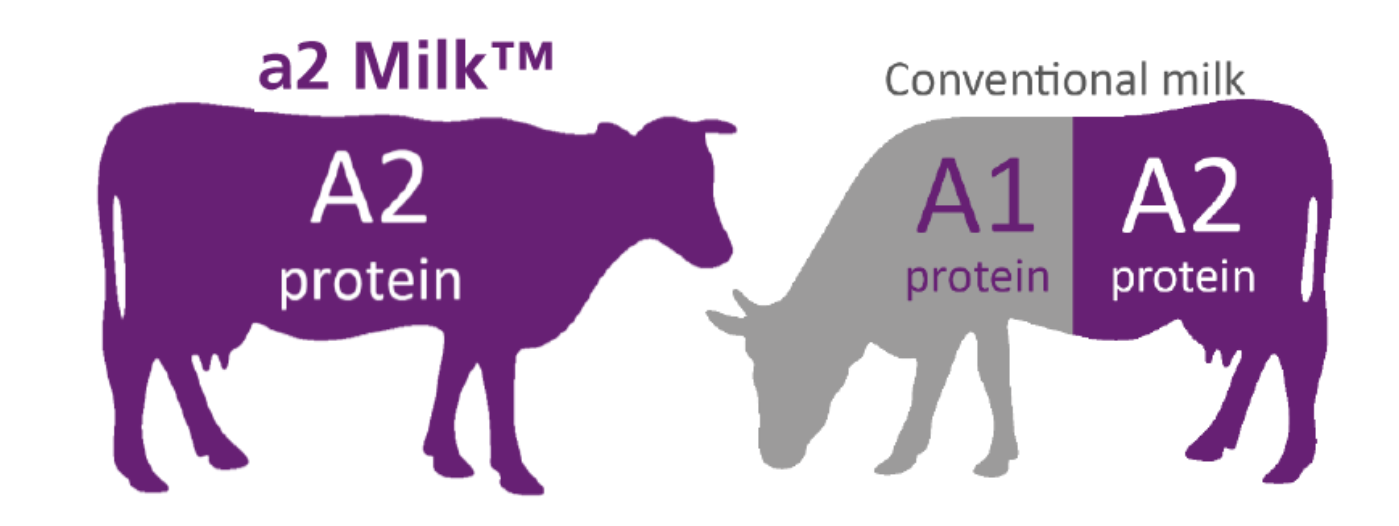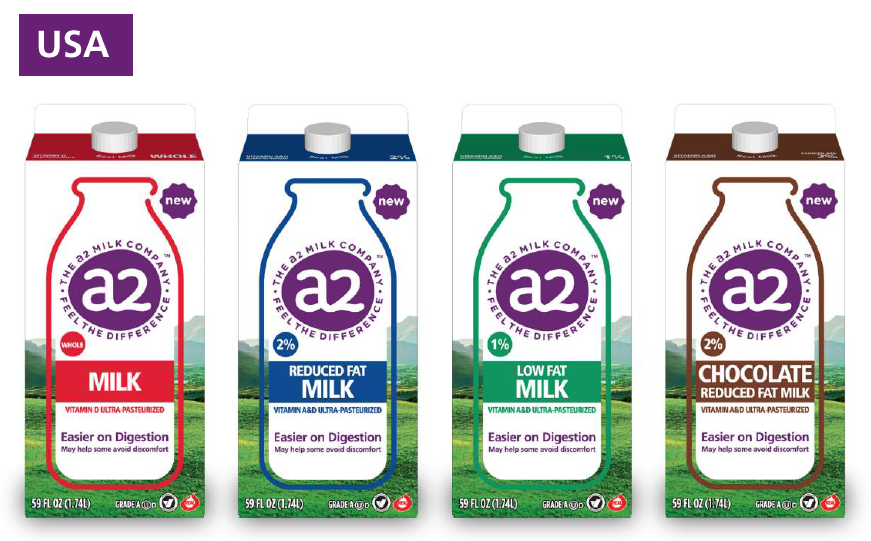a2 Milk Company aims to bring Americans back to Dairy
- By: "Farm Tender" News
- Regenerative Ag & Carbon Farming News
- Jul 17, 2018
- 905 views
- Share

Traditional milk? Who drinks that anymore?
From the 1980s to 2015, milk consumption in the U.S. plummeted 25% according to the American Farm Bureau as people sought out healthier lifestyles. At the same time, almond and coconut milk consumption soared 66% and 111%, respectively, amid their perceived health benefits.
"The dairy industry is its own worst enemy and the consumer is not its friend," Saint Joseph's University professor of food marketing Dr. John Stanton said, explaining how milk makers failed to convince millennials of milk's dietary benefits with its long-running 'Got Milk' campaign. "I don't think any industry in the world would permit a continual loss for 20 years and keep the same advertising agency. The competitive landscape of the beverage industry has changed so much that people don't even think about having a glass of milk, and are moving away from eating breakfast altogether"
The New Milk Company
Americans are turning at increasing rates to dairy alternatives as plant-based foods grow in popularity, leaving farmers and milk companies high and dry. But an Australia-based company called The a2 Milk Company wants to flip that trend on its head.
"We're about bringing people back to dairy. The nutritional value of dairy is very important," said a2 Milk Chief Executive Officer Geoffrey Babidge in an interview with TheStreet.
His company, a2 Milk, differentiates itself from the broader dairy industry in an important way. The company was started in 2000 after founder Corran McLachlan learned that cows produce two types of proteins -- a1 and a2. Research soon followed that illustrate the potential health risks of a1 protein and health benefits of a2, which is easier on digestion.
"The a2 protein was in fact the only protein in dairy milk until about 5,000 years ago," Babidge said, noting that the a1 protein was created through breeding for mass-market. He said the a1 protein digests differently in humans and can result in pesky reactions including inflammation. That's why so many people think they're lactose intolerant, when in fact they're just a1 intolerant.


"The market for milk intolerance is very significant in the U.S.," said Blake Waltrip, chief executive of a2's U.S. operations, adding that about 70 million to 75 million people report dairy intolerance in the country. That's played an enormous role in the rapid decrease of milk consumption in this country.
"You do see consumers that have reduced their dairy consumption very dramatically ... some of them have gone to plant-based beverages. Some of them have gone to lactose-free milk alternatives," Waltrip said.
Waltrip noted that the average family in the U.S. can have as many as four types of milk in the refrigerator, from almond to coconut to plain old cow's milk. For many families, a2 milk "can solve a lot of problems and it can create a great deal of loyalty."
A2 has expanded its offerings in the U.S. significantly in recent months, most recently entering the northeast market everywhere from Wegmans to Amazon's (AMZN - Get Report) (this is why Jim Cramer is bullish on Amazon) Whole Foods. It's also available in stores in the southeast and in California.


The Future
In the U.S., the only growth segment in the dairy sector are dairy alternatives.
But that's not the case in Australia, where a2 milk has gobbled up close to 10% of the fresh milk share in supermarkets. Babidge and Waltrip said that Australia is the only market in the world with growing milk consumption.
"This is a very uniquely differentiated proposition. This can have an impact on the overall growth of milk around the world," Waltrip said.
And high-end premium milk is a growing segment. After all, Coca-Cola Co. (KO - Get Report) launched in 2014 its Fairlife premium "ultra-filtered milk."
While fresh cow's milk is a2's biggest segment, it also started producing a1-free infant formula in 2011. The company sells a great deal of its formula in China, where more than half of infants are raised on formula. Babidge and Waltrip said China and the U.S. are key growth markets for the company, which has begun to establish dominance in Australia and New Zealand.
Australia-listed shares of a2 have risen sharply, up more than 2,000% in the last three years. Management said it expects sales to rise 63% this year following a 56% increase in 2017. Wall Street has taken notice -- BlackRock Inc. (BLK - Get Report) took a 5.03% stake in the company earlier this month and Deutsche Bank AG (DB - Get Report) has a buy rating on the shares.
"The jury's still out on whether that's going to make a difference or not," Stanton said. "There's been a decline for about 20 consecutive years in fluid milk sales, and I don't see anything to really turn that around."
"We've got plenty of growth opportunities organically and that's what our focus has been ... but we've got a strong balance sheet and what you could say is a healthy balance sheet," Babidge said.
A2 announced in February a strategic partnership with Fonterra, a New Zealand-based multinational dairy cooperative, that allows the two firms to link their global milk pools and supply chains to broaden market reach.
But still, a2 isn't bent on M&A just yet.
"Our focus over the last 10 years has been very much about organic growth," Babidge said. "Our priority is first to grow the brand."
And to get folks to embrace milk again.











Share Ag News Via